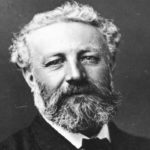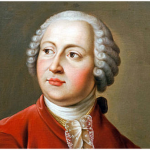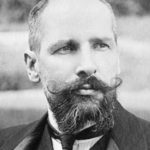Interesting facts from the life of Mendeleev
 Dmitri Mendeleev is rightfully considered one of the greatest scientists not only in Russia, but in the whole world, and indeed of all times and peoples. Although the majority of people, thanks to the table of chemical elements invented by him, he succeeded in various fields of science, and mankind owes him very, very much. He applied his knowledge in practice, presenting many useful devices to society.
Dmitri Mendeleev is rightfully considered one of the greatest scientists not only in Russia, but in the whole world, and indeed of all times and peoples. Although the majority of people, thanks to the table of chemical elements invented by him, he succeeded in various fields of science, and mankind owes him very, very much. He applied his knowledge in practice, presenting many useful devices to society.
The great scientist had sixteen brothers and sisters. In the family, he was the youngest.
While studying at the Pedagogical Institute due to mediocre performance, Dmitri Mendeleev was left for the second year.
Contrary to popular myth, he did not invent vodka. The myth arose because of the publication of scientific work about the combination of water and alcohol, which had nothing to do with vodka as such. Vodka at the time of publication produced a long time ago.
Mendeleev dedicated about 30 years of his life to work at St. Petersburg University. He left his walls in protest when the Minister of Public Education refused to accept a student petition in which they demanded freedom of speech.
In his youth, he once met with Gogol.
Mendeleev was married twice; he had six children. Another child died in infancy.
Another myth about Mendeleev is that he saw his famous periodic table of elements in a dream. This myth originated during his lifetime, and when he was voiced, he was offended, saying that he had been thinking about this discovery for about twenty years, and he was told that everything was so simple – he saw it in a dream, and it was done.
The great scientist was not indifferent to classical music. He considered Beethoven his favorite composer.
Mendeleev’s nephew was his full namesake. Because of this, they are often confused.
By compiling a periodic table, the scientist predicted the characteristics of elements that were not yet open at that time and left empty spaces for them in his table.
Mendeleev loved to work with his hands. Especially well he managed to manufacture luggage. Even when he was completely blind in his old age, he continued to work by touch.
He was repeatedly nominated for the Nobel Prize, but he never received it, most likely because of a conflict with the Nobel brothers related to oil extracted in Baku.
In 1887, Mendeleev alone rose in a balloon to a height of more than three kilometers to conduct a series of measurements. The flight lasted about three hours.
Only about 10% of all Mendeleev’s works are devoted to chemistry.
The scientist wrote more than forty scientific papers about the Arctic navigation and took an active part in the construction of “Ermak”, the world’s first Arctic icebreaker.
Mendeleev’s daughter subsequently married the poet Alexander Blok.
The scientist discovered smokeless powder for Russia on behalf of the authorities. Armed with open reports, he found out how much and what powder ingredients the producing countries of this product have imported over the past ten years. This allowed him to calculate the proportions and achieve success after a series of experiments.
In 1985, Mendeleev presented his draft of a balloon with engines and a pressurized cabin that could climb into the upper atmosphere. The project has not been implemented.
It was he who first invented the pipelines for pumping oil. Before that, it was transported in barrels and waterskins.
The chemical element mendeleevy, opened in 1955 by artificial means, was named after the creator of the periodic table.
Partly thanks to Mendeleev, women in Russia began to receive higher education. He was one of the first lecturers leading courses for students.
In total, during his life the great scientist published 431 scientific papers.
Throughout his life, Mendeleev often visited public baths.
On the question of how he treats people of different nationalities, Mendeleev replied “it doesn’t matter if the person was efficient”.
The scientist did not believe in medicine, preferring to be treated with folk remedies in the case of the disease.



























